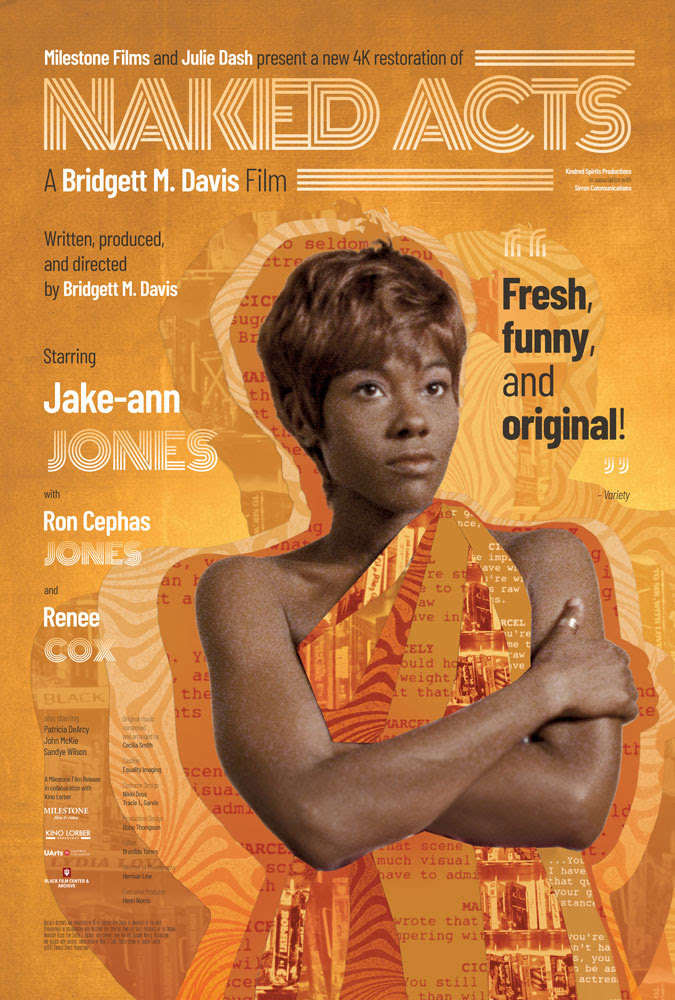“Minding your own business is a full-time motherf*cking job, and everybody needs to stay employed!” Though this emphatic declaration bookends the new BET+ series “Diarra from Detroit,” which stars writer/creator/actress Diarra Kilpatrick, very few of its characters pay it any mind. The eight-episode blend of mystery and comedy occasionally struggles to find its footing, but damn if it isn’t the funniest series this writer has had the pleasure of watching in quite some time.
The struggle is real for seventh grade teacher Diarra Brickland (Kilpatrick, utterly unrecognizable from her terrific turn as Clara Drake on HBO’s “Perry Mason”). Recently separated from her wealthy lawyer husband Swa (the dreamy Morris Chestnut) after he asked for an open marriage, Diarra is spiraling, veering between bouts of tears and half-baked revenge plans. She tries to rely on colleagues and friends for support, including Mr. Tea (Bryan Terrell Clark, a natural fit for the part), another teacher at her school, and Aja Edwards (DomiNque Perry, a queen of comedy), an ambitious entrepreneur fighting to reinvigorate Detroit while also crediting her newfound (and patronizingly vocal) belief in God and celibacy with her success. Having moved into her snowbird mother’s old house, Diarra also reunites with Moni (Claudia Logan, utterly delightful), her childhood frenemy, who lives next door with her husband Roman (Sylvain Bechir) and their children. Finally, Diarra runs into Danger (Jon Chaffin, sheer perfection in the role), a former friend from her teen years who has now morphed into something of a self-actualized, therapy-attending, wisdom-spouting local goon.

This writer would gladly watch a sitcom about these characters, given their nuanced backstories, hysterical antics, and whip-smart insults that don’t feel forced, just accurate and clever. The action really kicks off, however, when a mystery arrives at Diarra’s doorstep in the form of Chris (Shannon Wallace), a man with whom she matches on Tinder and goes on a handful of deeply successful dates with. Fully “in like” with this new man, who is as skilled at ordering in a restaurant as he is in bed, Diarra is in seventh heaven, hopeful that this new bond may be what helps her accept her impending divorce. But Chris ghosts her on their fifth date. Diarra refuses to believe this; instead, she is convinced he’s been kidnapped, and sets off to solve the mystery of Chris’s disappearance with her friends.
Mocking the true crime military industrial complex has become something of a trope in recent years, with shows as different as “Dexter: New Blood” and “Based on a True Story” riffing on the popularity of podcasts, blogs, and YouTube channels dedicated to the genre. “Diarra from Detroit” chooses to dollop in small doses of such mockery, but the journey to find Chris has little to do with true crime and is largely about Diarra’s attempts to define herself as something other than a driven, engaged teacher battling a messy divorce. Reinforced repeatedly through the writing is the relatability of these characters’ stories. Kilpatrick embodies that unholy blend of emotions in the aftermath of a breakup—shame, frustration, rage, anxiety—via the specificity of her body language. Her limbs are languid, hunched when she is morose, but when she’s inspired there’s no stopping her, she’s a whirling dervish of determination, results be damned. The camera does not shy away from close-ups of Diarra in times of crisis, pleasure, and humiliation, highlighting the messy state of being a woman in flux.
The writing is thankfully careful not to sideline the rest of the cast either, who are fully fleshed out, negotiating challenges, joys, and the socioeconomic differences adult friend groups can run into. Perry is a natural comedienne—she previously shone as Lawrence’s rebound on “Insecure”—balancing with ease her insecurities and hopes for a shining future. Moni’s marriage to Roman is strong (they discuss mundane household tasks in between moans during sex) until it’s not, and Logan and Bechir do a wonderful job sorting out the knots together. Clark is an absolute riot to watch, as Mr. Tea fears nothing so much as permanent, reliable intimacy with a long-term partner. The bond between the cast is profound; you’d think they’ve known each other for years, given the ease with which they tease, support, and simply exist with each other.

Other aspects of note include the exceptional hair, makeup, and costume design of the series. Everyone on “Diarra from Detroit” is an adult with a day job, but their makeup is a grownup ode to the dramatic beauty seen on “Euphoria.” The series also features some of the most absurdly joyful and creative costuming seen on television since the heyday of “Sex and the City.” Highlights include puffer jackets and fur coats in mustard, coral and hot pink; intricately patterned woolen cape sweaters, thigh high boots in leather and suede, sequined gowns, silken jewel tone hooded jumpsuits, and perhaps most interesting of all, corseted vests and waistcoats, in a variety of colors, patterns, and textures, for female characters. And while none of Carrie Bradshaw or Diarra Brickland’s attire could be affordable on a writer or teacher’s salary, respectively, who cares? “Diarra from Detroit” improves upon the fantasy of fashion espoused by “Sex and the City,” with more depth and screwball comedy than the latter ever managed.
The series stumbles in two significant ways, however: first, its pacing, which drops off considerably in episode 3 and 4, though the writing manages to pick things back up by episode 6. “Diarra from Detroit” also has some of the worst sound mixing this writer has observed in a TV series, though master edits were not made available for review, and perhaps this problem will be resolved before the first episode premieres. But it’s a testament to the series’ quality that none of this really impacts enjoyment of the series. The sheer number of jokes in each episode rivals the pacing of laughs on “30 Rock,” and after just a few episodes, the viewer may well feel they’re not tuning in to keep up with the story, but instead to catch up with friends for whom they cheer and mourn. Now that’s good TV.
Entire series screened for review. Premieres today, March 21.












